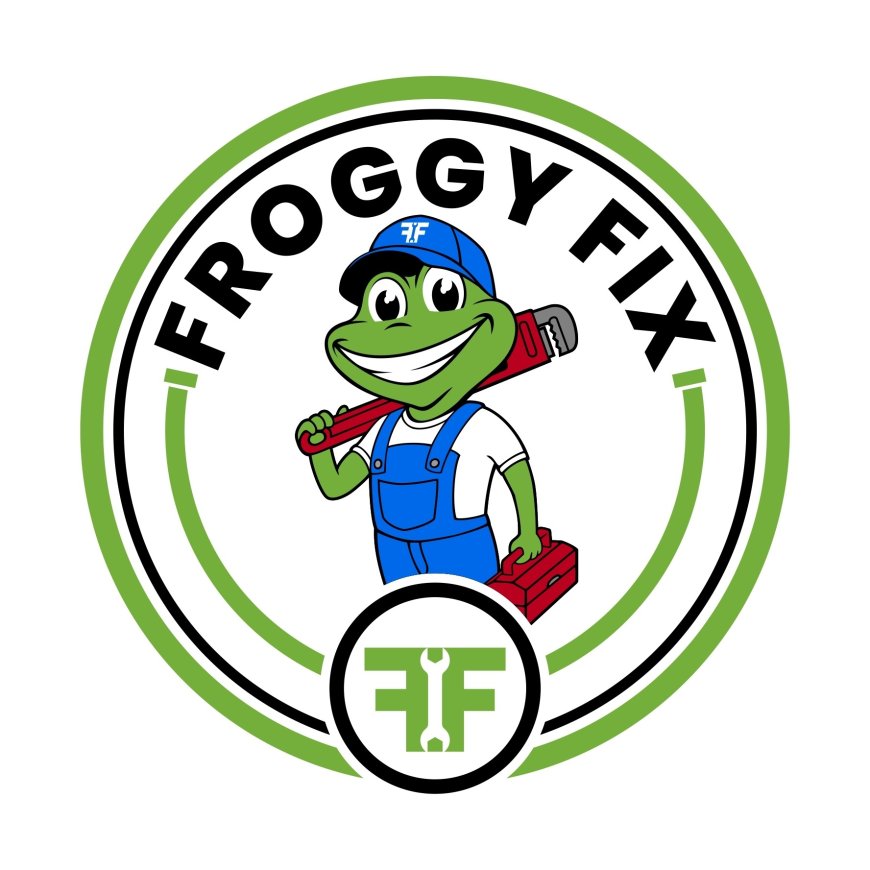Top 10 Plumbing Issues in Glendale, AZ: How to Fix Them
Top 10 Plumbing Issues in Glendale, AZ: How to Fix Them

Plumbing issues are a common headache for homeowners, and those living in Glendale, AZ, are no exception. With a variety of plumbing problems arising from aging infrastructure, weather conditions, and general wear and tear, it's essential to know how to tackle these issues effectively.
In this blog, we'll explore the top 10 plumbing issues in Glendale, AZ, and provide practical solutions to fix them.
Whether you're a DIY enthusiast or need professional help, this guide is here to help you manage your plumbing woes.
1. Leaky Faucets
Causes and Symptoms
Leaky faucets are one of the most common plumbing problems in Glendale, AZ. The constant dripping can waste up to 3,000 gallons of water per year, according to the Environmental Protection Agency (EPA).
How to Fix It
Typically, a leaky faucet is caused by worn-out washers or O-rings. Replacing these parts is a relatively simple task that requires basic tools. If the problem persists, it might be time to call a professional for plumbing repair in Glendale, AZ.
2. Clogged Drains
Causes and Symptoms
Clogged drains often result from a buildup of hair, soap scum, and grease. Over time, these materials can obstruct water flow, leading to slow draining sinks and showers.
How to Fix It
Using a plunger or a plumber's snake can often clear minor clogs. For persistent issues, a professional plumber can use hydro-jetting to remove stubborn blockages and restore proper drainage.
3. Running Toilets
Causes and Symptoms
A running toilet can waste up to 200 gallons of water per day, significantly increasing your water bill. This issue usually stems from a faulty flapper valve or a malfunctioning fill valve.
How to Fix It
Replacing the faulty components in the toilet tank usually resolves the problem. If you're unsure how to proceed, a plumber specializing in plumbing repair in Glendale, AZ, can quickly and efficiently fix the issue.
4. Low Water Pressure
Causes and Symptoms
Low water pressure can make daily tasks like showering and washing dishes frustrating. Common causes include mineral buildup in pipes, leaks, or issues with the municipal water supply.
How to Fix It
Cleaning aerators and showerheads can often improve water pressure. If the problem persists, it may indicate a more significant issue that requires a professional inspection and repair.
5. Water Heater Problems
Causes and Symptoms
Water heater issues, such as insufficient hot water or strange noises, are prevalent in Glendale, AZ. These problems often result from sediment buildup or faulty heating elements.
How to Fix It
Flushing the water heater tank annually can help prevent sediment buildup. If the heater is still underperforming, it might be time to replace the heating elements or seek professional plumbing repair in Glendale, AZ.
6. Burst Pipes
Causes and Symptoms
Burst pipes can cause significant water damage and are often due to freezing temperatures or high water pressure. Glendale's occasional cold snaps can lead to this severe plumbing issue.
How to Fix It
Insulating pipes and maintaining a consistent temperature in your home can prevent pipes from freezing. In the event of a burst pipe, shut off the main water supply immediately and contact a plumber for emergency repair.
7. Sewer Line Issues
Causes and Symptoms
Sewer line problems can manifest as foul odors, slow drains, or even sewage backups. These issues are often caused by tree roots, blockages, or old, deteriorating pipes.
How to Fix It
A professional plumber can use a camera inspection to diagnose sewer line issues. Depending on the severity, solutions range from snaking the line to replacing damaged sections.
8. Sump Pump Failure
Causes and Symptoms
Sump pumps are crucial for preventing basement flooding. Failure can result from power outages, clogged discharge lines, or mechanical issues.
How to Fix It
Regular maintenance, including cleaning the sump pump and testing it periodically, can prevent failures. Installing a backup battery system can also ensure the pump operates during power outages.
9. Hard Water
Causes and Symptoms
Glendale, AZ, is known for its hard water, which can cause mineral buildup in pipes and appliances, leading to reduced efficiency and lifespan.
How to Fix It
Installing a water softener can mitigate the effects of hard water. Regular maintenance of the softener system is necessary to keep it functioning optimally.
10. Gas Leaks
Causes and Symptoms
Gas leaks are a serious plumbing issue that requires immediate attention. Signs include the smell of rotten eggs, hissing sounds near gas lines, and dead vegetation around the area.
How to Fix It
If you suspect a gas leak, evacuate your home immediately and contact emergency services. Do not attempt to fix gas leaks yourself. Professional plumbers trained in handling gas lines should address this issue.
Statistical Insight: The Importance of Timely Plumbing Repairs
According to the American Water Works Association, the average household leak can waste nearly 10,000 gallons of water annually, equating to 10% of homes having leaks that waste 90 gallons or more per day.
This highlights the importance of timely plumbing repairs to conserve water and reduce utility bills.
Conclusion: Trust FroggyFix for Plumbing Repair in Glendale, AZ
Dealing with plumbing issues can be daunting, but understanding the common problems and knowing how to address them can save time, money, and frustration. For those residing in Glendale, AZ, professional help is just a call away.
FroggyFix offers reliable and efficient plumbing repair in Glendale, AZ, ensuring your plumbing system operates smoothly. With their expert team and commitment to customer satisfaction, you can trust FroggyFix to handle all your plumbing needs.
Don’t let plumbing problems disrupt your life—contact FroggyFix today for top-notch service and peace of mind.
By staying proactive and addressing plumbing issues promptly, homeowners in Glendale, AZ, can maintain a functional and efficient plumbing system, ensuring a comfortable and hassle-free living environment.
What's Your Reaction?

























